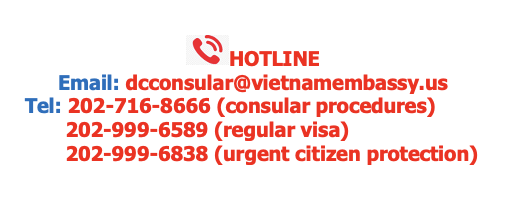US-Vietnam BTA: A tremendous success for both
Lao Dong Newspaper, February 11, 2004
The first two years of the BTA have been tremendously successful for both countries, said the U.S.-Vietnam Trade Council which has just released a report on BTA implementation issues faced by US companies since its conclusion in 2001.
In an interview on 10 February, Mr. Demetrios Marantis, Chief Legal Advisor for the U.S.-Vietnam Trade Council, said: “The main success of the BTA is that the US market on goods and services which was closed prior period is now open to Vietnamese companies. With the BTA, Vietnamese exporters have access to the US, and as a result exports from Vietnam have increased tremendously.” According to the statistics quoted in the report, US investment in Vietnam is USD 1.44 billion, two way trade in the first 10 months of 2003 was USD 4.784 billion, up by close to 3 times compared with 2001, the year before the BTA implementation.
US investors feel that all areas in the investment environment have improved considerably since the BTA. Nevertheless, Mr. Marantis stressed: “There are still areas where efforts could be strengthened further – e.g. customs valuation, IPR enforcement, and improvement in transparency.” The transparency level in Vietnamese legal system is not yet at the same level with that of other economies. The companies also expressed concerns that their patents, trademarks and copyrights are not adequately protected.
To ensure the continued success of BTA implementation, Ms. Shiumei Lin, Senior International Trade Policy Analyst, added: “Vietnam is beginning to open its services market in accordance with the BTA and various new laws and regulations are being drafted in this regard. Companies hope that implementing regulations and prudential measures introduced do not negate any market access commitments that the BTA would otherwise provide.”
The report is based on extensive interviews conducted with close to eighty U.S. companies over an eight week period in the summer of 2003, representing the manufacturing, pharmaceutical, distribution, insurance, financial, transportation, legal, and consulting service sectors, among others. One of the goals for producing this report is to identify areas where the U.S.-Vietnam Trade Council may target its technical assistance to help strengthen capacity – such as that in customs valuation, IPR enforcement, and transparency.
Along with BTA implementation, the U.S-Vietnam Trade Council is also providing technical assistance to help Vietnam accede to the WTO. Many BTA provisions incorporate WTO disciplines. Therefore, BTA implementation should go hand in hand with efforts for WTO’s accession. Ms. Shiumei Lin, the report’s principal drafter, added: “The report includes issues that Vietnam will likely have to address for its WTO Accession. For example, U.S. companies would like to be able to participate in the express-delivery service sector in Vietnam. There are no commitments in this area in the BTA. This is therefore one of the areas that Vietnam will likely have to address.”
Interviewed companies said that though Vietnam is a market with many challenges, they do not consider it more difficult for doing business than other emerging economies, the report reveals. “The companies that have committed long-term business and been here for a quite long time find the investment environment greatly improved”, said Ms. Shiumei Lin, “It is the newcomers that find it more challenging due to the lack of transparency. In order to keep attracting new investment, it is important that Vietnam continue to increase transparency and predictability in order to be competitive with other countries in the region.”
Mr. Marantis noted” “FDI is flowing into China. That is why Vietnam should join the WTO as soon as possible. As an outsider of the WTO, Vietnam does not have the comparative advantage that China, Malaysia, Singapore, Thailand, and even Cambodia now has. Vietnam also needs to improve its competitiveness to integrate with the new competitive environment in doing business with the US.”



